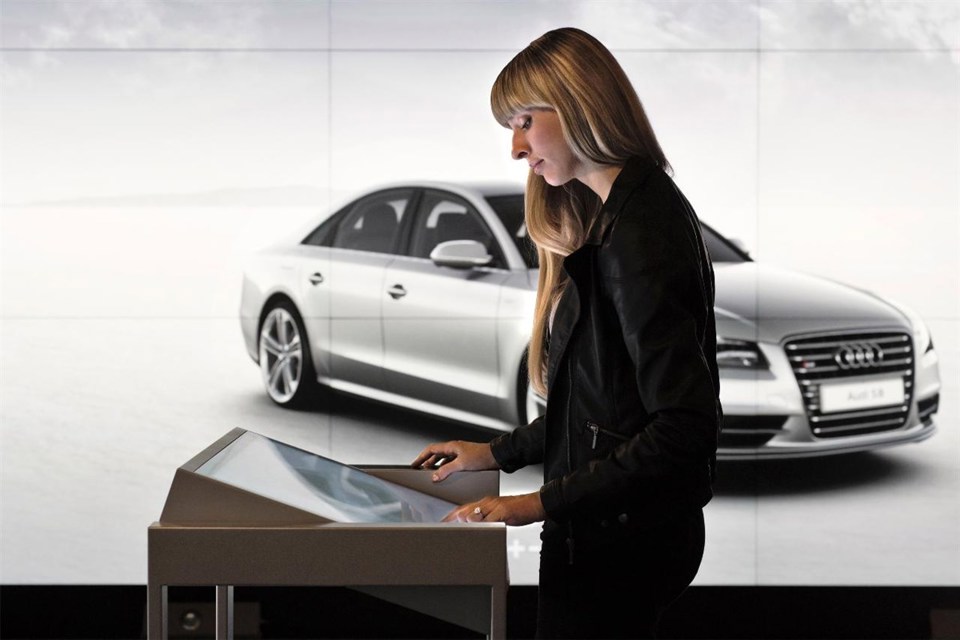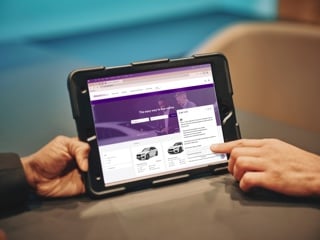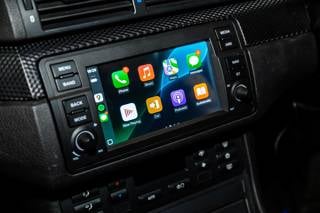Frost & Sullivan expects that by 2020, 60-70 percent of new car sales leads are likely to be generated by a digital platform as manufacturers look to adopt a new retail model for the next generation of car buyers.
The analysis from Frost & Sullivan’s The Advent of Digital Retailing and its Impact on Car Dealership Structures report, predicts that the majority of leads will be through websites, mobiles sites, social media and apps.
Julia Saini, Frost & Sullivan director growth consulting automotive & transportation, uses the Audi City digital showroom model in London as an example of how she believes the retail model will change in the future.
She said: “The halo effect of the digital showroom in the heart of the city is expected to drive sales to outer stores and potentially affect dealership network setups, both in terms of size and total number of traditional dealerships.”
Car companies are also using fashion merchandising and combining lifestyle elements into retailing globally. Lexus Intersect Tokyo and L’ Atelier Renault, Paris conduct special events and exhibitions for new product launches, offering a strong automotive brand experience through lifestyle-related concepts of art, fashion, music, design, food and technology.
Saini said: “Better quality leads and easier follow-ups through integrated social media strategy define the success of digital showrooms.
“By 2016, carmarkers are expected to open more than 100 digital showroom/lifestyle stores globally, specifically aimed at enhancing both the retail and brand experience with limited on-floor physical inventory.”
Frost & Sullivan says European and North American car manufacturers are expected to invest between $500 million and $5 billion in updating store technology, training staff, and digitally integrating various aspects of the car retailing process, soft digitisation technologies such as digital tools, signage and kiosks are anticipated to grow strongly in the short term.



















Login to comment
Comments
No comments have been made yet.